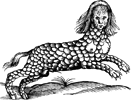Vertebrate Pest Conference: Proceedings

Vertebrate Pest Conference Proceedings: 14th (1990)
Date of this Version
March 1990
Document Type
Article
Abstract
The balance of nature requires a balanced predator-prey relationship. In agriculture or urban areas the natural predator-prey balance is disrupted because the habitats have been altered and, for the protection of livestock (and for humans in case of grizzly bears, lions, and wolves), the large carnivores have usually been displaced. Consequently, in these altered environments to prevent crop depredations, to keep other vertebrate species in balance with their environment, and to protect some endangered species, people must manage the wildlife. This often means that for the welfare of animals people have to become predators to assist nature. Fortunately, from an animal welfare point of view, people are usually a more humane predator than nature because they operate under regulations designed to minimize suffering. While animals and their antics can be beautiful, the way predators capture and kill prey is often inhumane and brutal. Therefore, animal control operations, as currently undertaken with rodents, birds, and predators, frequently play both a beneficial and a humane role. Without such controls, there is often much more suffering through starvation, disease, etc. Also, much animal damage control is pest prevention, thus reducing the former need for toxic chemicals and lethal approaches.

